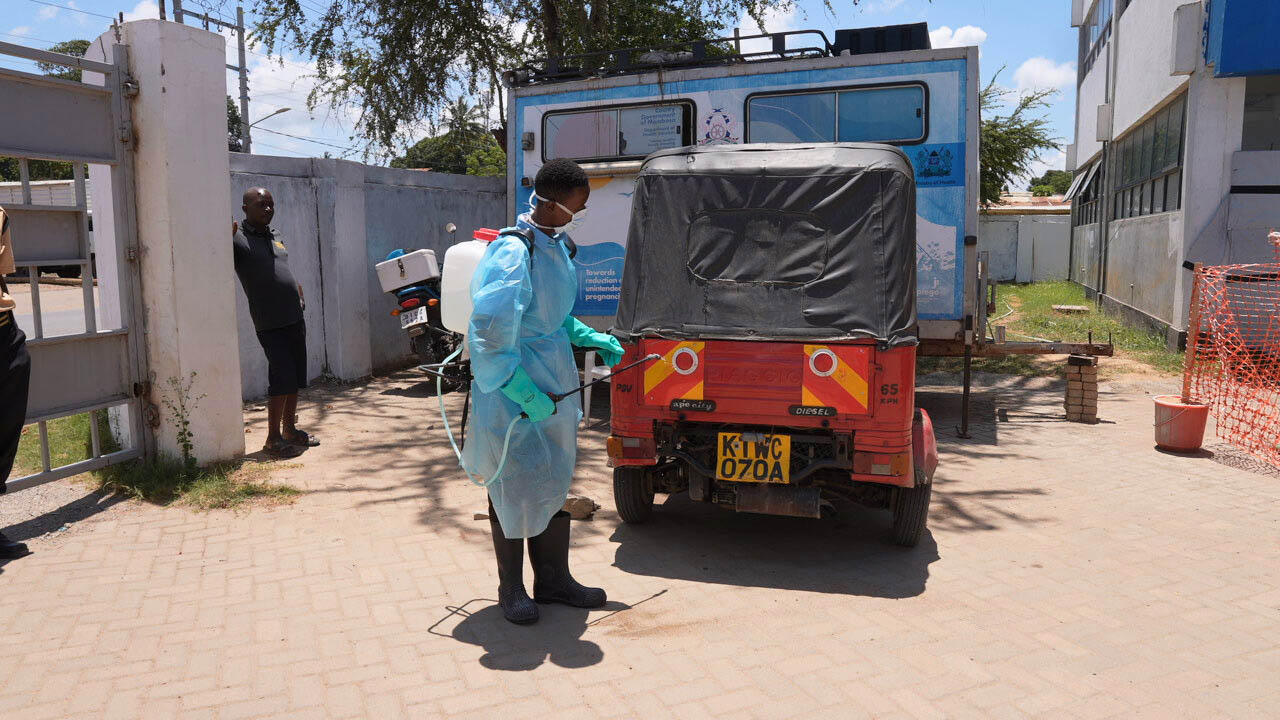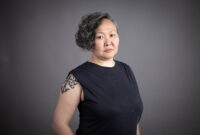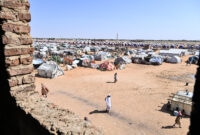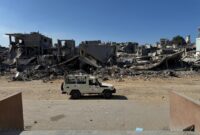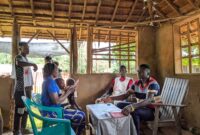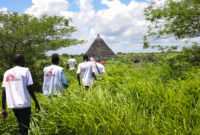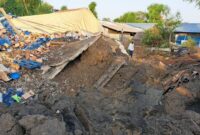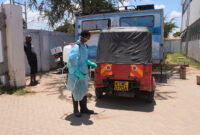Kenya: Behind the mask – a hygienist’s response to mpox
Being a hygienist isn’t just about cleaning. It’s about protecting lives.
When I tell people I disinfect ambulances and isolation wards for a living, most of them think I am crazy, especially people my age. Some of my friends are busy with TikTok dance challenges or chasing soft life dreams and here I am, deep in protective gear, spraying down virus-contaminated zones for eight hours straight. Sometimes longer.
My name is Mwachiro Ngala Mangale. I am 23 years old, the youngest on our 15-person hygiene team here at the Utange isolation centre in Mombasa. We are part of the Doctors Without Borders/Médecins Sans Frontières (MSF) emergency response for the current mpox outbreak, working alongside the Mombasa County Department of Health. My job? Disinfect everything from the red zone, where confirmed mpox patients are, to the green zone and even the ambulances that bring in suspected cases. It’s a lot of responsibility and I don’t take it lightly.
People think this work is about chemicals and cleaning, but it’s more than that. It’s about protecting lives, those of the patients, their families and even the doctors and nurses who care for them. The virus spreads easily through contact and stigma is high. So, we have to be twice as careful and three times as thorough.
“You might wonder why someone like me does this, when it’s risky, intense and often thankless. The answer is simple: passion. I feel called to serve. This is my community, these are my people. If I don’t step up, who will?”
Mwachiro Ngala Mangale, MSF hygienist
I will be honest, some days are hard. There was a time during my shift when a patient passed away. It hit me hard. After the nurses left, it was my job to disinfect the body and the entire room. That night, my shift went well past eight hours. It was difficult, but someone had to do it. I kept reminding myself if it was my own brother, I would want someone to take care of him with dignity.
You might wonder why someone like me does this, when it’s risky, intense and often thankless. The answer is simple: passion. I feel called to serve. This is my community, these are my people. If I don’t step up, who will?
Sometimes when I am in the red zone and not actively disinfecting, I spend time with the patients. We talk, joke and even share stories. They are lonely and some are scared. Mpox isolates you physically and emotionally. I try to remind them that they are still human, still part of us. I always say, “Today it’s them, tomorrow it could be my neighbour, my cousin, even me.” No one chooses to get sick.
I am not a doctor or a nurse. I don’t give injections or write prescriptions. But I believe my role is just as important. I create the space where healing can safely happen. I help reduce fear, even just a little.
I know many people don’t see hygienists. We are in the background. But that’s okay. As long as the patients sees me as someone who cares, who is not afraid to be close to them when other people don’t then I know I am exactly where I need to be.
And that’s more than enough.
